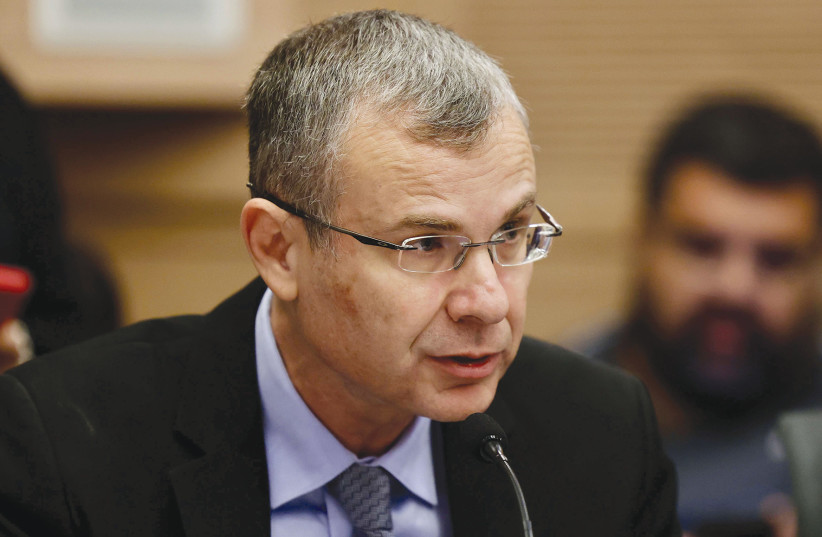Clashes and riots between anti-regime and pro-regime Eritrean nationals in south Tel Aviv on Saturday night may serve to stimulate grassroots and coalition fervor for judicial reform, if the responses by government's leaders are to be taken at face value.
The violent riots that saw around dozens of people wounded and mass vandalism damaging storefronts, was the responsibility of the High Court of Justice, Finance Minister Bezalel Smotrich wrote on social media on Saturday night.
"For years we have been warning," said Smotrich. "For years the High Court has prevented any action that would allow the infiltrators to be returned to their homes."
The High Court, according to Justice Minister Yariv Levin, counteracted any attempts by the government to solve the longstanding problems associated with infiltrations, asylum seekers, and illegal immigrants. Levin listed a series of decisions from 2013-2020 that allegedly exacerbated the issues.
"If anyone had any doubts as to why the reform is so important and what we are fighting for, they received a crushing answer today," Levin said on Sunday morning. "The government led and the Knesset enacted many laws over the years designed to deal with the phenomenon of infiltrators, but the High Court overruled these moves again and again."

What does the judicial reform have to do with Eritreans rioting?
The coalition members tapped into key elements of the judicial reform, some having been abandoned over the course of the year.
Transportation Minister Miri Regev argued on Sunday against the court being able to strike down laws that are for "the benefit of Israeli citizens." Limiting judicial review was one of the most important elements of the judicial reform, but legislation was abandoned in March in an attempt to "soften" the overhaul in the face of unprecedented protest. In a June 29 Wall Street Journal interview, Prime Minister Benjamin Netanyahu indicated that he would not be pursuing judicial review again.
Levin also highlighted the importance of altering the composition and rules of the Judicial Selection Committee.
"It is important to ensure that elected officials can make decisions and carry them out. That is why the method of selecting judges is so important. Therefore, it should be ensured that judges who grew up in these neighborhoods and the periphery are also elected to the court," said Levin, calling for "Judges who put the interests of the residents of the neighborhoods before those who steal the border."
The Judicial Selection Committee provision was the first to have a bill advanced, but it was frozen by Netanyahu just before its final readings at the Knesset plenum. Netanyahu has said that he would seek to advance legislation to change the panel after the Knesset recess, but that it would be altered from previous proposals. Levin has refused to convene the Judicial Selection Committee until it has been reformed -- resulting in a High Court hearing on Thursday.
National Security Minister Itamar Ben-Gvir went further with words on Sunday by proposing legislation for an override clause on Basic Law: Human Dignity and Liberty. The override for the striking down of legislation by the High Court would ostensibly be only for matters pertaining to illegal immigrants. Like with the clause initially proposed in the judicial reform, it would need only a simple 61 Knesset majority vote.
An override clause was included in the abandoned judicial review bill, and Netanyahu explicitly said that he wouldn't be seeking its revival. Yet the limited override could serve as a foothold for the expansion for further such targeted overrides or even a full override.
These may be kneejerk responses by ministers who have had judicial reform on their mind for a long time, but it is also possible that they may be coordinated talking points.
Regardless of the motivation and intent of the comments, the end result may be the same. The riots are a symptom of a severe problem in south Tel Aviv, and residents are rightfully seeking solutions – the coalition may be able to repackage the judicial reform as the answer.
